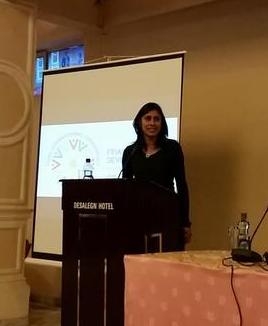
“The Addis Ababa agreement must address the continued imbalances of the global tax governance system to end the extensive tax evasion that deprives countries of billions of dollars in public revenue every year… It must also address the haphazard regulation of financial actors and minimal control of financial markets that has led to increased levels of inequality across the globe”
Finance is a critical element within a package of enabling measures, including policy coherence for development, accountability and participatory frameworks to support the implementation of the post-2015 framework and Sustainable Development Goals (SDGs). The outcome of the Third Financing for Development Conference in Addis Ababa will play a critical role in determining the effectiveness of agreements reached to finance implementation. It will be well worthwhile for the EU to work constructively to reach a multilateral agreement at the Addis Ababa Conference that builds on the 2002 Monterrey Consensus on Financing for Development and 2008 Doha Declaration on Financing for Development.
The Addis Ababa agreement must address the continued imbalances of the global tax governance system to end the extensive tax evasion that deprives countries of billions of dollars in public revenue every year, undermining states’ efforts to fulfil their international obligations. It must also address the haphazard regulation of financial actors and minimal control of financial markets that has led to increased levels of inequality across the globe. It must set out concrete commitments to put in place the global institutional and regulatory frameworks to support actions at country level and across borders to achieve economic stability, while decreasing income inequality. It must address the financial sector’s responsibility for taking risk to prevent the transfer of risk to the public account as during the financial crisis. Particular attention should be paid to the accountability of private investors using public finance. It must clearly set out how the impacts of portfolio investment and foreign direct investment (FDI) will be monitored and agree on the implementation of social, economic, cultural and environmental safeguards to maximise their positive impact and reduce the risks associated with such financial flows. Similarly, the deficiencies of the current ad-hoc sovereign debt governance regime should be corrected once and for all. The agreement must also set in action measures to prevent constraining countries’ ability to fulfil their human rights obligations and forge broad multilateral support for rules on responsible lending and borrowing.
Reaching a consensus on these issues in Addis Ababa is a prerequisite for the SDG financing agreement that must be a part of the post-2015 framework to be announced at the UN Summit in New York this September. The SDG finance agreement must be built on the principle of common but differentiated responsibility and burden sharing. The prevailing paternalistic and charitable approach to development finance needs to be replaced by the notion of fair burden-sharing. Such a model would be consistent with state obligations within the International Covenant on Economic, Social and Cultural Rights to “take steps, individually and through international assistance and cooperation, especially economic and technical, to the maximum of [their] available resources”.
Development finance is a matter of solidarity. Many countries will not be able to fulfil the obligations and commitments under the new framework without predictable external finance that upholds the highest standards of development effectiveness. International solidarity should therefore be considered an obligation, and requires that commitments to reach ODA targets be made legally binding. In addition to reaching committed levels of ODA, the quality of aid – both public and private – should be improved, building on existing commitments to enhance the impact of development assistance.
Certain basic principles must also be set out in the agreement to ensure the maximum effectiveness of the financing arrangements for the realisation of the goals:
- Financial assets and flows should be visible and transparent.
- The impact of different types of financial flows on sustainable development should be assessed ex-ante and properly monitored ex-post.
- Banking supervision agreements should take into account the environmental and social risks of financial activities, mainstreaming the inclusion of environmental and social clauses in future bank regulation.
- International human rights and environmental rules and standards should be incorporated into investment and credit criteria. This should apply not only to public financial institutions but also to private actors in financial markets.
- Principles and practice of good governance should apply to financial policy. Public and private actors in the financial sector should be held accountable for their actions.
A global consensus to orientate finance to support sustainable development in Addis Ababa, complemented by an ambitious agreement on financing the Sustainable Development Goals, is essential. This will be important to determine whether or not the post-2015 framework and the new global climate agreement are truly transformative. Most critically, it will have big impacts on the lives of people who are systematically denied their basic human rights, have been living in poverty and have been structurally excluded from circles of influence and decision-making.
Article originally posted by Friends of Europe at this link.
Contact:
Jean Saldanha
Senior Policy Advisor
saldanha(at)cidse.org
